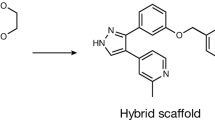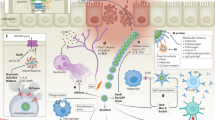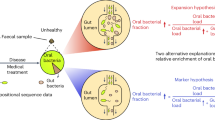Abstract
Objective
We aimed to determine factors associated with gut colonization of preterm neonates with coagulase-negative staphylococci (CoNS) from maternal milk (MM).
Study Design
CoNS isolated from weekly collected stool and MM of hospitalized preterm (n = 49) and healthy term neonates (n = 20) were genotyped. Colonization-related factors were determined by Cox proportional hazards regression.
Result
Gut colonization with mecA-negative Staphylococcus epidermidis from MM was less prevalent (40.8% vs. 95%) and delayed (median age 15.5 vs. 2 days) in preterm compared with term neonates. Enhanced colonization was associated with higher intake of CoNS from MM (hazard ratio (95% confidence interval) 1.006 (1.00–1.01) for 106 colony-forming units), lower proportion of mecA-positive predominant NICU strains in gut (0.09 (0.01–0.49) for 1%) and lower incidence of late-onset CoNS sepsis (5% vs. 34% in those without colonization).
Conclusion
Enteral feeding with larger proportion of unpasteurized MM and limiting spread of predominant strains may promote colonization with CoNS from MM.
This is a preview of subscription content, access via your institution
Access options
Subscribe to this journal
Receive 12 print issues and online access
$259.00 per year
only $21.58 per issue
Buy this article
- Purchase on Springer Link
- Instant access to full article PDF
Prices may be subject to local taxes which are calculated during checkout



Similar content being viewed by others
References
Dong H, Cao H, Zheng H. Pathogenic bacteria distributions and drug resistance analysis in 96 cases of neonatal sepsis. BMC Pediatr. 2017;17:44.
Salgueiro VC, Azevedo MB, Iorio NL, Amorim EeL, dos Santos KR. Staphylococcal cassette chromosome mec elements in methicillin-resistant coagulase-negative staphylococci from a Brazilian neonatal care unit. Pediatr Infect Dis J. 2014;33:1089–90.
Kaplan HC, Lannon C, Walsh MC, Donovan EF. Ohio Perinatal Quality Collaborative. Ohio statewide quality-improvement collaborative to reduce late-onset sepsis in preterm infants. Pediatrics. 2011;127:427–35.
Soeorg H, Huik K, Parm Ü, Ilmoja ML, Metsvaht T, Lutsar I. Molecular epidemiology of Staphylococcus epidermidis in neonatal intensive care units. APMIS. 2017;125:63–73.
Soeorg H, Metsvaht T, Eelmäe I, Merila M, Treumuth S, Huik K, et al. The role of breast milk in the colonization of neonatal gut and skin with coagulase-negative staphylococci. Pediatr Res. 2017;82:759–67.
Soeorg H, Metsvaht HK, Keränen EE, Eelmäe I, Merila M, Treumuth S, et al. Genetic relatedness of Staphylococcus haemolyticus in gut and skin of preterm neonates and breast milk of their mothers. Pediatr Infect Dis J. 2018. https://doi.org/10.1097/INF.0000000000002056.
Soeorg H, Huik K, Parm U, Ilmoja ML, Metelskaja N, Metsvaht T, et al. Genetic relatedness of coagulase-negative staphylococci from gastrointestinal tract and blood of preterm neonates with late-onset sepsis. Pediatr Infect Dis J. 2013;32:389–93.
Qin L, Da F, Fisher EL, Tan DC, Nguyen TH, Fu CL, et al. Toxin mediates sepsis caused by methicillin-resistant Staphylococcus epidermidis. PLoS Pathog. 2017;13:e1006153.
Tolo I, Thomas JC, Fischer RS, Brown EL, Gray BM, Robinson DA. Do Staphylococcus epidermidis genetic clusters predict isolation sources? J Clin Microbiol. 2016;54:1711–9.
Soeorg H, Metsvaht T, Eelmäe I, Metsvaht HK, Treumuth S, Merila M, et al. Coagulase-negative Staphylococci in human milk from mothers of preterm compared with term neonates. J Hum Lact. 2017;33:329–40.
Jiménez E, Delgado S, Maldonado A, Arroyo R, Albújar M, García N, et al. Staphylococcus epidermidis: a differential trait of the fecal microbiota of breast-fed infants. BMC Microbiol. 2008;8:143.
Martín V, Maldonado-Barragán A, Moles L, Rodriguez-Baños M, Campo RD, Fernández L, et al. Sharing of bacterial strains between breast milk and infant feces. J Hum Lact. 2012;28:36–44.
Corpeleijn WE, Kouwenhoven SM, Paap MC, van Vliet I, Scheerder I, Muizer Y, et al. Intake of own mother’s milk during the first days of life is associated with decreased morbidity and mortality in very low birth weight infants during the first 60 days of life. Neonatology. 2012;102:276–81.
Johansson A, Koskiniemi S, Gottfridsson P, Wiström J, Monsen T. Multiple-locus variable-number tandem repeat analysis for typing of Staphylococcus epidermidis. J Clin Microbiol. 2006;44:260–5.
Cremniter J, Sivadon-Tardy V, Caulliez C, Bauer T, Porcher R, Lortat-Jacob A, et al. Genetic analysis of glycopeptide-resistant Staphylococcus epidermidis strains from bone and joint infections. J Clin Microbiol. 2013;51:1014–9.
Cavanagh JP, Klingenberg C, Hanssen AM, Fredheim EA, Francois P, Schrenzel J, et al. Core genome conservation of Staphylococcus haemolyticus limits sequence based population structure analysis. J Microbiol Methods. 2012;89:159–66.
Zhang K, Sparling J, Chow BL, Elsayed S, Hussain Z, Church DL, et al. New quadriplex PCR assay for detection of methicillin and mupirocin resistance and simultaneous discrimination of Staphylococcus aureus from coagulase-negative staphylococci. J Clin Microbiol. 2004;42:4947–55.
Kondo Y, Ito T, Ma XX, Watanabe S, Kreiswirth BN, Etienne J, et al. Combination of multiplex PCRs for staphylococcal cassette chromosome mec type assignment: rapid identification system for mec, ccr, and major differences in junkyard regions. Antimicrob Agents Chemother. 2007;51:264–74.
Milani C, Duranti S, Bottacini F, Casey E, Turroni F, Mahony J, et al. The first microbial colonizers of the human gut: composition, activities, and health implications of the infant gut microbiota. Microbiol Mol Biol Rev. 2017;81:e00036–17.
Cortese F, Scicchitano P, Gesualdo M, Filaninno A, De Giorgi E, Schettini F, et al. Early and late infections in newborns: where do we stand? A review. Pediatr Neonatol. 2016;57:265–73.
Cossey V, Vanhole C, Verhaegen J, Schuermans A. Intestinal colonization patterns of staphylococci in preterm infants in relation to type of enteral feeding and bacteremia. Breastfeed Med. 2014;9:79–85.
Shaw AG, Sim K, Randell P, Cox MJ, McClure ZE, Li MS, et al. Late-onset bloodstream infection and perturbed maturation of the gastrointestinal microbiota in premature infants. PLoS ONE. 2015;10:e0132923.
Korpela K, Blakstad EW, Moltu SJ, Strømmen K, Nakstad B, Rønnestad AE, et al. Intestinal microbiota development and gestational age in preterm neonates. Sci Rep. 2018;8:2453.
Gibson MK, Wang B, Ahmadi S, Burnham CA, Tarr PI, Warner BB, et al. Developmental dynamics of the preterm infant gut microbiota and antibiotic resistome. Nat Microbiol. 2016;1:16024.
Jiménez E, Delgado S, Fernández L, García N, Albújar M, Gómez A, et al. Assessment of the bacterial diversity of human colostrum and screening of staphylococcal and enterococcal populations for potential virulence factors. Res Microbiol. 2008;159:595–601.
Cailes B, Kortsalioudaki C, Buttery J, Pattnayak S, Greenough A, Matthes J, et al. Epidemiology of UK neonatal infections: the neonIN infection surveillance network. Arch Dis Child Fetal Neonatal Ed. 2017. https://doi.org/10.1136/archdischild-2017-313203.
Rodrigues C, Severo M, Zeitlin J, Barros H. The type of feeding at discharge of very preterm infants: neonatal intensive care units policies and practices make a difference. Breastfeed Med. 2017. https://doi.org/10.1089/bfm.2017.0135.
Wilson E, Edstedt Bonamy AK, Bonet M, Toome L, Rodrigues C, Howell EA, et al. Room for improvement in breast milk feeding after very preterm birth in Europe: results from the EPICE cohort. Matern Child Nutr. 2018;14:e12485.
Snyder R, Herdt A, Mejias-Cepeda N, Ladino J, Crowley K, Levy P. Early provision of oropharyngeal colostrum leads to sustained breast milk feedings in preterm infants. Pediatr Neonatol. 2017;58:534–40.
Dicky O, Ehlinger V, Montjaux N, Gremmo-Féger G, Sizun J, Rozé JC, et al. Policy of feeding very preterm infants with their mother’s own fresh expressed milk was associated with a reduced risk of bronchopulmonary dysplasia. Acta Paediatr. 2017;106:755–62.
Mense L, Rößler S, Hanusch R, Roßberg C, Rüdiger M. Bacterial contamination of mechanically extracted breast milk. Am J Perinatol. 2014;31:293–8.
Schanler RJ, Fraley JK, Lau C, Hurst NM, Horvath L, Rossmann SN. Breastmilk cultures and infection in extremely premature infants. J Perinatol. 2011;31:335–8.
Josephson CD, Caliendo AM, Easley KA, Knezevic A, Shenvi N, Hinkes MT, et al. Blood transfusion and breast milk transmission of cytomegalovirus in very low-birth-weight infants: a prospective cohort study. JAMA Pediatr. 2014;168:1054–62.
Kayıran PG, Can F, Kayıran SM, Ergonul O, Gürakan B. Transmission of methicillin-sensitive Staphylococcus aureus to a preterm infant through breast milk. J Matern Fetal Neonatal Med. 2014;27:527–9.
Weems MF, Dereddy NR, Arnold SR. Mother’s milk as a source of Enterobacter cloacae sepsis in a preterm infant. Breastfeed Med. 2015;10:503–4.
Brooks B, Olm MR, Firek BA, Baker R, Thomas BC, Morowitz MJ, et al. Strain-resolved analysis of hospital rooms and infants reveals overlap between the human and room microbiome. Nat Commun. 2017;8:1814.
O’Connor C, Powell J, Finnegan C, O’Gorman A, Barrett S, Hopkins KL, et al. Incidence, management and outcomes of the first cfr-mediated linezolid-resistant Staphylococcus epidermidis outbreak in a tertiary referral centre in the Republic of Ireland. J Hosp Infect. 2015;90:316–21.
Asnicar F, Manara S, Zolfo M, Truong DT, Scholz M, Armanini F, et al. Studying Vertical microbiome transmission from mothers to infants by strain-level metagenomic profiling. mSystems. 2017;2:e00164–16.
Stewart CJ, Embleton ND, Marrs ECL, Smith DP, Fofanova T, Nelson A, et al. Longitudinal development of the gut microbiome and metabolome in preterm neonates with late onset sepsis and healthy controls. Microbiome. 2017;5:75.
Acknowledgements
We thank the study nurses Marika Zuihhina, Eve Kaur and Tuuli Tammekunn; clinical microbiologist Dr. Marika Jürna-Ellam; laboratory assistants Dagmar Hoidmets, Tiiu Rööp and Sandra Sokmann; and all the study participants.
Funding
This study was funded by Estonian Research Council (IUT34-24), European Regional Development Fund (Project SFOS WP1-NeuroAIDS), Archimedes Foundation (Project No. 3.2.1001.11-0032) and the European Society for Paediatric Infectious Diseases (ESPID Small Grant Award) and supported by Estonian Ministry of Education and Research (Grant No. KOGU-HUMB).
Author information
Authors and Affiliations
Corresponding author
Ethics declarations
Conflict of interest
The authors declare that they have no conflict of interest.
Electronic supplementary material
Rights and permissions
About this article
Cite this article
Soeorg, H., Treumuth, S., Metsvaht, H.K. et al. Higher intake of coagulase-negative staphylococci from maternal milk promotes gut colonization with mecA-negative Staphylococcus epidermidis in preterm neonates. J Perinatol 38, 1344–1352 (2018). https://doi.org/10.1038/s41372-018-0183-y
Received:
Revised:
Accepted:
Published:
Issue Date:
DOI: https://doi.org/10.1038/s41372-018-0183-y
This article is cited by
-
Genetic relatedness of Gram-negative bacteria colonizing gut and skin of neonates and mother’s own milk
Journal of Perinatology (2018)



